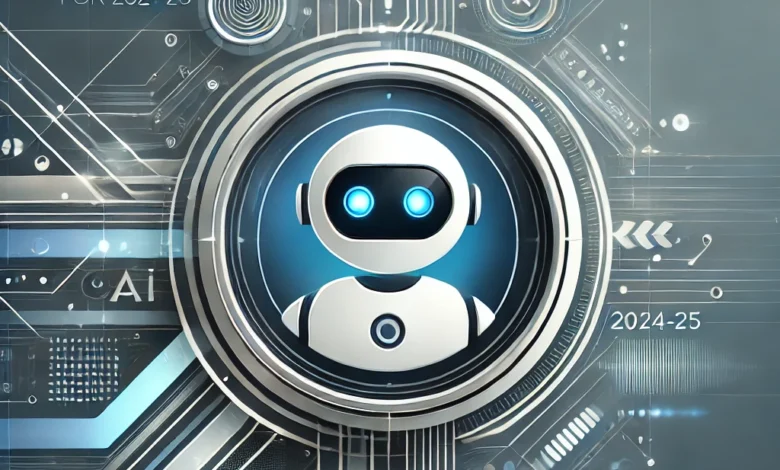The Future of AI Chatbots: What’s Next?

Artificial intelligence has come a long way, with chatbots as one of the most prominent applications. As we continue to innovate, the roles of these virtual assistants are rapidly expanding, impacting businesses, education, and entertainment.
But where exactly is the future of AI chatbots heading? Let’s explore how these virtual helpers will continue evolving and transforming the way we communicate and interact in digital spaces.
Current Landscape of AI Chatbots
Today, AI chatbots are widely used in various sectors. We see them in customer service, e-commerce, and healthcare, handling requests with precision. These bots help streamline operations, saving businesses time and resources.
Users engage with AI for simple queries, troubleshooting, or as an information source. However, advancements in natural language processing (NLP) and machine learning (ML) have opened up new doors for chatbot capabilities.
This growing sophistication indicates a future where AI chatbots will not just answer questions but also anticipate needs and provide even more nuanced support.
AI Chatbots in Customer Service
One of the largest sectors to benefit from AI chatbots is customer service. Many companies are replacing traditional support methods with chatbots that respond instantly. Unlike a human agent, a chatbot can handle multiple conversations simultaneously, ensuring customer issues are addressed without delay.
But chatbots are moving beyond simple, scripted interactions. Soon, AI chatbots might understand emotional cues, adjusting their tone to comfort, empathize, or calm users in a more human-like manner.
This would transform customer service, making interactions feel genuinely personal and improving satisfaction.
Education and Learning Assistance
AI chatbots in education are transforming how we approach learning. For instance, a student can ask a chatbot about a homework topic and receive immediate help or feedback on their progress. Interactive, 24/7 assistance helps students learn independently.
AI-generated tutoring support allows for tailored teaching strategies, adapting responses based on each student’s skill level and learning style.
In addition, these chatbots can even keep track of a student’s performance over time, identifying areas where they struggle and offering personalized resources or study suggestions.
AI Chatbots in Entertainment and Social Interaction
One of the most fascinating developments is the rise of AI chatbots designed for companionship and entertainment. Some people seek chatbots for light-hearted conversation, while others look for more personalized interactions.
This trend is especially popular among users who may experience loneliness or those who find comfort in virtual companionship. Consequently, developers are creating more interactive, conversationally aware bots that simulate real human interactions.
In these cases, chatbots are designed not only to respond but to proactively engage in conversations and offer relatable, human-like companionship.
Chatbots with Content Sensitivity and Age-Appropriate Interactions
As chatbots become more widespread, it’s essential to consider the ethical and age-related boundaries. For instance, 18+ AI chat has emerged as a new category, which focuses on providing interactions that are suitable for adults only.
This includes not just content moderation but creating distinct chatbot experiences based on the user’s preferences and age requirements. Such advancements mean that, eventually, AI can be structured to comply with guidelines that consider user age and intentions while delivering an experience aligned with user expectations.
Clearly, creating responsibly designed AI interactions that respect privacy and boundaries is a crucial component of future AI chatbot development.
Challenges in Making AI Chatbots More Human-Like
While the goal is to create AI that feels more human, achieving that is a complex task. Chatbots require constant data input and analysis to refine their responses. Unlike traditional programming, where each command is pre-set, AI chatbots must learn continuously to improve. Human communication includes tone, context, and body language cues, making it challenging for AI to fully replicate.
Although NLP models continue to evolve, the need for more intuitive and contextually aware bots is crucial. Even though they are getting closer, the difference between chatting with AI and a real person is still apparent. However, the pursuit to reduce this gap continues to drive AI advancements.
Evolving Privacy and Data Security Concerns
One concern that has surfaced with AI chatbots is data privacy and security. Chatbots gather information during interactions to provide better answers. But this data can sometimes be sensitive, especially when dealing with personal or confidential topics.
In particular, chatbots interacting in 18+ AI chat environments or discussing intimate details require stringent privacy protocols. Companies must ensure data is not only protected but also managed ethically.
With AI-generated content growing in complexity, managing these privacy concerns responsibly will be vital to gaining users’ trust.
Specialized AI Chatbots and Niche Markets
As AI chatbots diversify, they’re likely to start catering to more specific interests. Chatbots created for niche interests or hobbies can offer specialized knowledge and interactions tailored to a specific audience.
In online forums, some users even seek an AI generated pussy or companion, where the chatbot can simulate conversations and interactions to fulfill a unique role.
This trend underlines the diverse potential of AI bots, not only in delivering information but in forming tailored experiences that resonate with different audiences.
The Impact of AI Chatbots on Employment
With increased automation, there’s an ongoing debate about the impact of AI on jobs. Chatbots undoubtedly take over repetitive, low-complexity tasks, which means some traditional roles are disappearing. However, AI also opens up new roles, such as chatbot management, content moderation, and AI training.
These jobs require unique skills that combine technical knowledge and empathy. The future will see a shift where humans work alongside AI, with AI chatbots supporting them in time-consuming tasks, allowing people to focus on strategic, high-impact work.
Future Advancements: Self-Learning AI
AI chatbots of the future are expected to be self-learning, requiring minimal human intervention to improve over time. Right now, developers must regularly update AI models with new data. In the future, self-learning algorithms will help AI chatbots grow organically.
This means they will be able to pick up on subtle changes in language trends, industry jargon, or slang. Self-learning AI chatbots can adapt to users on a more profound level, evolving through each interaction.
As a result, they will be able to provide a unique experience for each individual, making every conversation more customized and relatable.
Humanizing AI Chatbots: Ethical Considerations
As AI chatbots advance, there’s a critical need to address the ethical aspects of human-AI interaction. With AI being able to mimic human conversations so accurately, developers face the responsibility of ensuring these tools are used appropriately.
Ethical considerations come into play, especially when bots engage in emotionally charged or sensitive conversations.
The goal is to create tools that respect the human experience and contribute positively without deceiving or harming users. Responsible AI use should be the foundation of all future advancements in chatbot technology.
Conclusion
The future of AI chatbots holds incredible potential, reshaping how we interact with technology and each other. These virtual assistants will likely become more advanced, intuitive, and human-like, serving people in new and meaningful ways across various sectors.
Although challenges remain, especially regarding ethics, privacy, and human-like interaction, the continuous improvement in AI technology hints at a promising horizon where AI chatbots seamlessly integrate into our lives, supporting, guiding, and even comforting us in our daily tasks. AI chatbots have already proven their worth, and the journey ahead is sure to be even more transformative.
